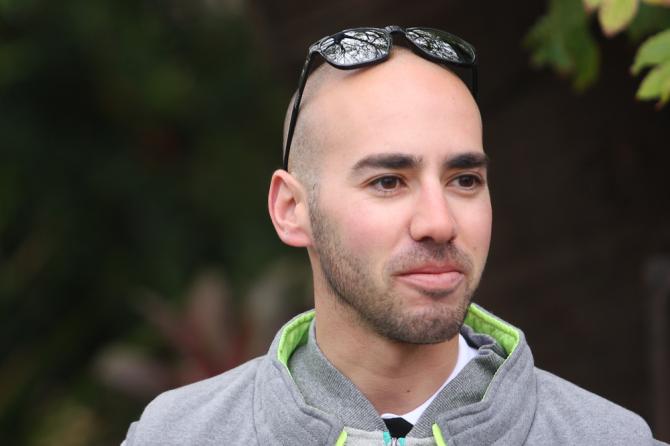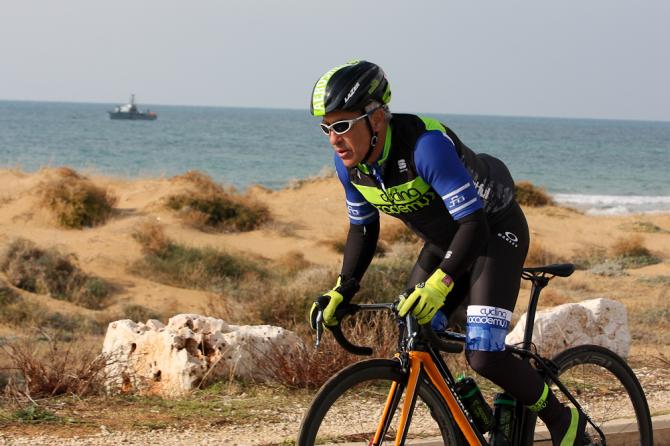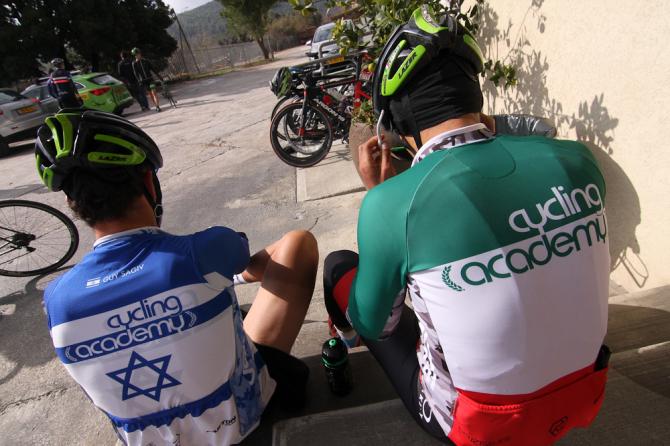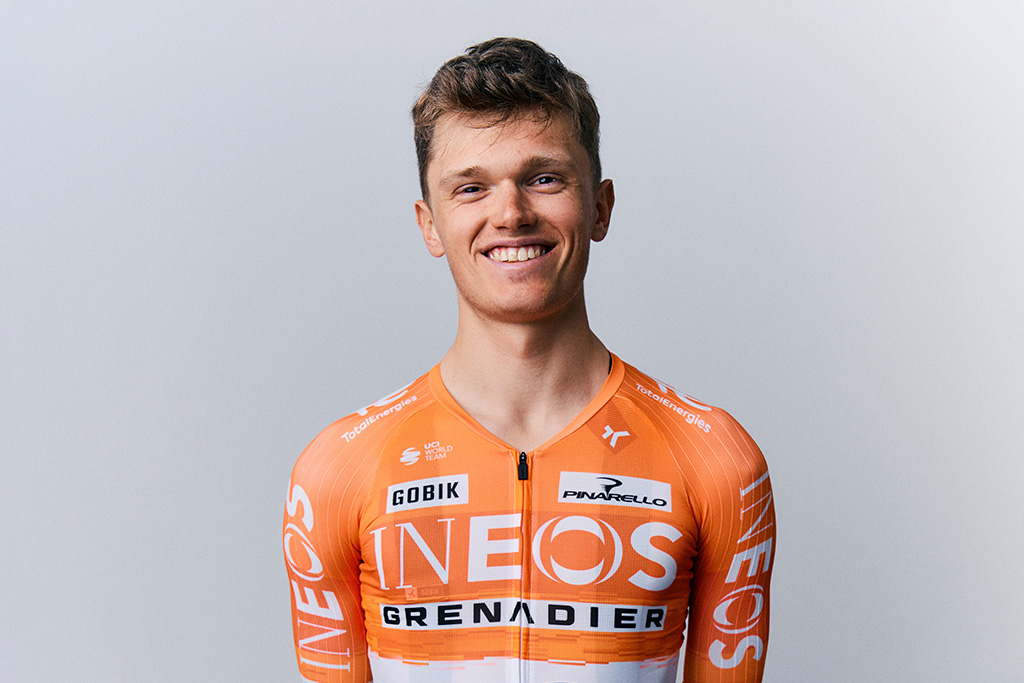Cycling Academy aims to punch above its weight
Jumping to Pro Continental status in its third year, first Israeli team packs surprising punch
The latest race content, interviews, features, reviews and expert buying guides, direct to your inbox!
You are now subscribed
Your newsletter sign-up was successful
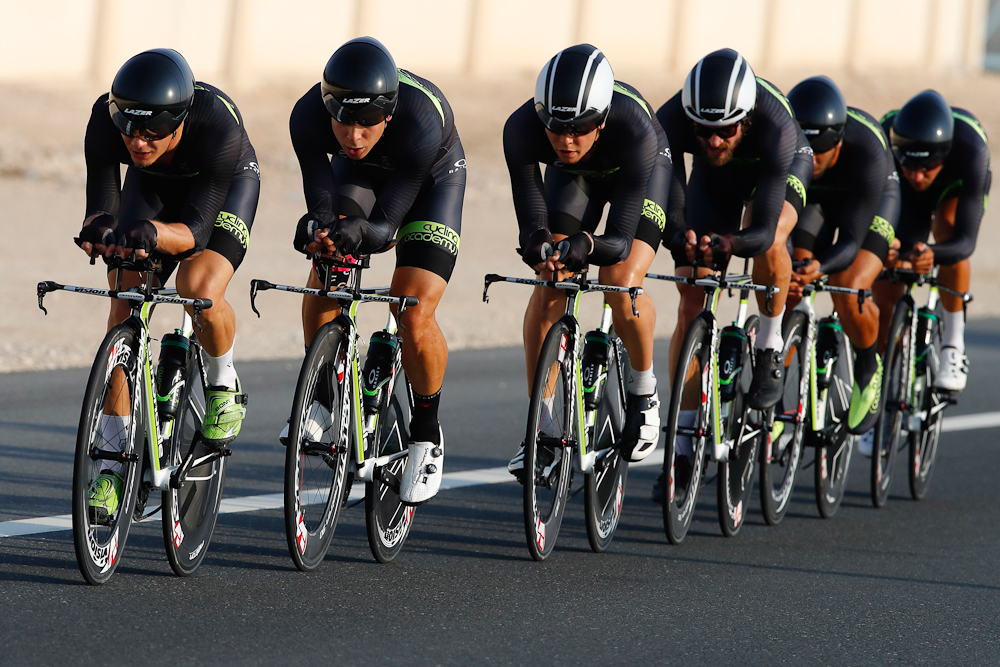
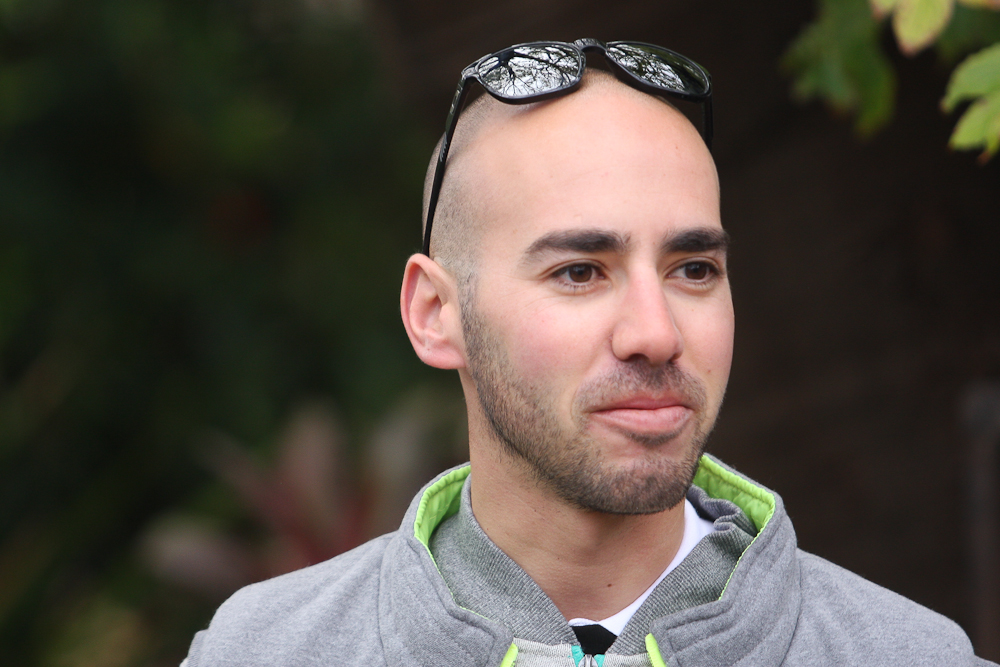
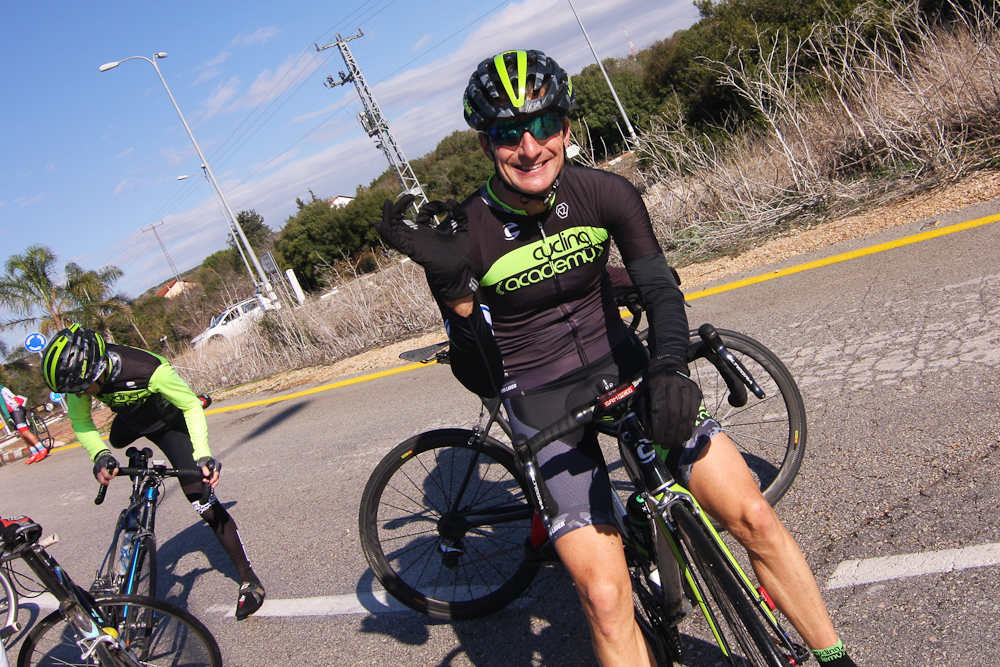
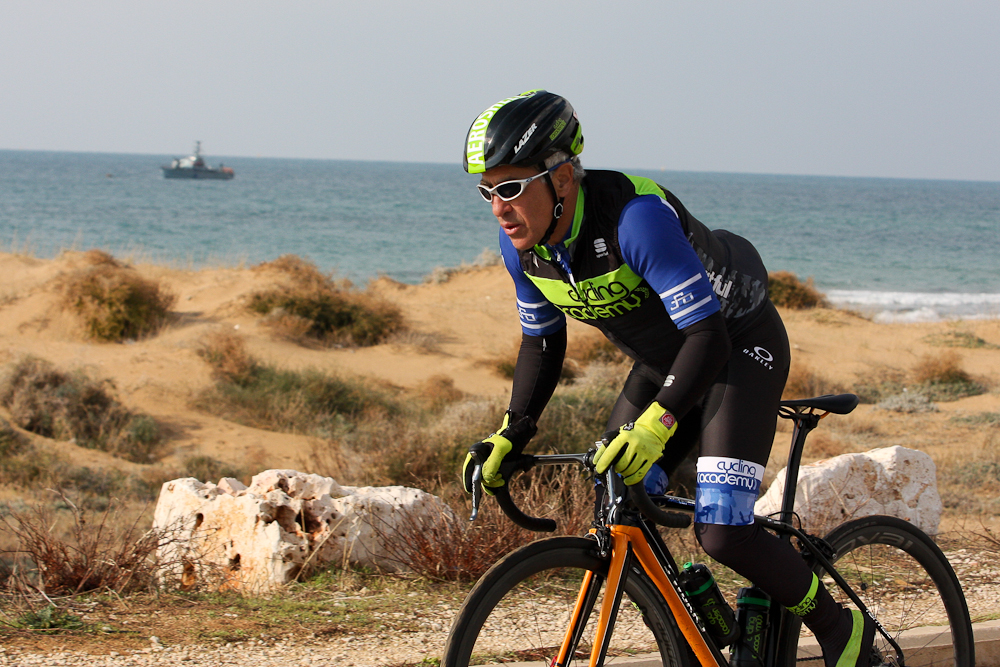
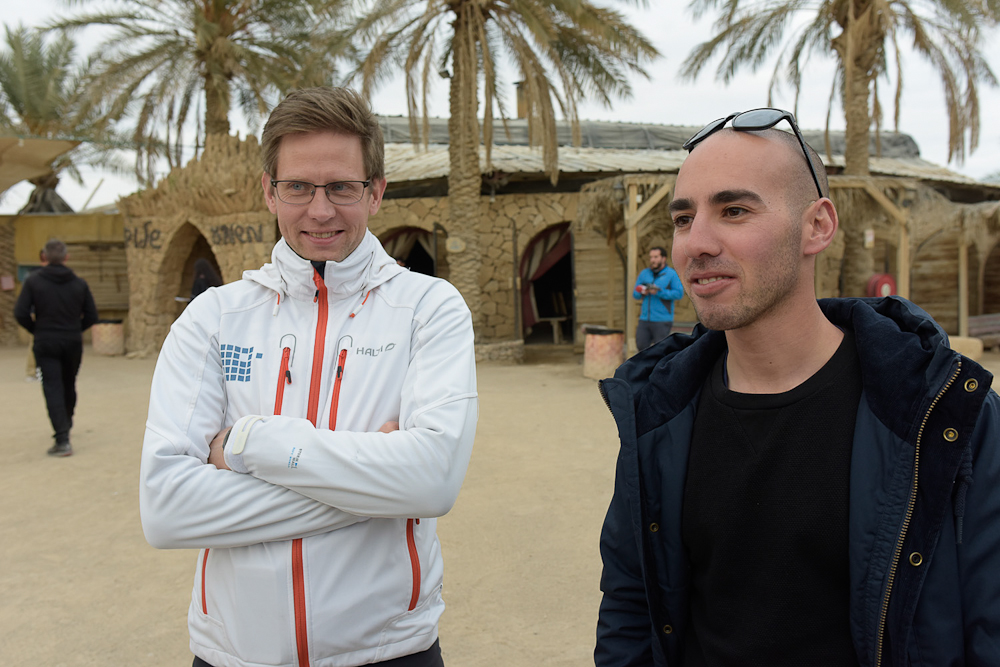
Punching above his weight is the unofficial mantra for Cycling Academy General Manager Ran Margaliot, who rode a single year on the WorldTour with Saxo Bank in 2012, so it should come as no surprise that the 28-year-old was able to take his Israeli pro team from an inkling of an idea to the Pro Continental level in just over three years.
Dreaming of cycling greatness was an odd goal for an Israeli boy coming up in a country where the only pro to look up to was Yehuda Gershoni, a figure from the 1980s who rode with Sean Kelly at Skil-SEM and retired four years before Margaliot was born. But after some junior racing success, Margaliot was encouraged to set a high goal, and from that point on he was determined to become the first Israeli to ride in the Tour de France.
"I really figured out that making it to the Tour de France would bring the sport to the public attention here in our country," he said. "I thought, 'OK, that will be my breakaway plan, if I'm able to bring the sport to the attention of the public, that's how I'm going to change the sport.'"
The lack of cycling tradition in Israel was just the first obstacle to overcome, however, as Margaliot, who raced in Europe as a junior with an amateur team, quickly had to navigate the three years of mandatory military service that all Israelis are required to fulfill beginning at age 18.
The military requirement can often end a young Israeli rider's professional aspirations, but a spot on the Suanier-Duval U23 team in Spain for the 2008 season allowed Margaliot to get a special dispensation from the army that allowed him to train around his service, and he signed with the Footon-Servetto development team in 2009. That season led to a spot in the UCI's World Cycling Centre Programme in 2010 and a stagiaire spot on the Footon-Servetto WorldTour team at the end of the year.
Margaliot met Bjarne Riis in 2011, and a stagiare spot with Saxo Bank-Sungard followed at the end of that season. Margaliot's Tour de France dream was one step closer when he signed with Saxo Bank in 2012, but it ended abruptly when his contract was not renewed the following year. He raced just 26 days with Riis' WorldTour squad that year, and at the end of the season Riis broke the news that Margaliot's goal of riding in the Tour de France would have to continue someplace else. Margaliot was 24 and facing "retirement" from a sport in which he believed he had only scratched the surface.
"It was really hard for me," Margaliot admitted. "It was hard to admit I was not good enough. All my life I raced against all odds, through the army and all that, and made it to Saxo Bank. When Bjarne called me and said he wasn't going to renew my contract, I was like, 'I'm going to show you. I'm going to make it back.' But I guess I was also a little bit spoiled, because I didn't want to go back to racing amateur and racing for nothing.
The latest race content, interviews, features, reviews and expert buying guides, direct to your inbox!
"Also, my form was not great and my health was not perfect. In my eyes I never stopped racing. I just took a break," Margaliot joked. "So it was really hard for me."
Cycling Academy General Manager Ran Margaliot rode with Saxo Bank in 2012
Turning a loss into a win
Margaliot stayed active in cycling, and the desire to see the first Israeli rider compete in the Tour de France never waned, even if that rider would now be someone else. That dream began to take shape again during a Saturday recreation ride in the Jerusalem mountains when Margaliot met Tel Aviv financial attorney and avid cyclist Ron Baron, and Margaliot agreed to coach him.
"We ended up spending quite a few months together, and we did a race called the TransAlps Challenge, a duo race across the Alps," Margaliot said. "During the preparation for this race he told me, 'You know, I'm supporting all these amateur cyclists' – because he had a lot of cyclists he had been supporting through the years – 'why don't we start a team?' I said, 'Yeah, why not. Sure.'"
And with that, the seeds of the first Israeli pro team were planted. With Baron's investment, the team obtained a UCI Continental license, recruited Peter Sagan's support and announced the formation of 'Peter Sagan's Cycling Academy' in December of 2014 during a soggy exhibition criterium along the ancient walls of Jerusalem's old city.
"Ran wanted to bring about a change to the very mediocre cycling environment in Israel and to bring an inspiration for young cyclists in Israel and other developing countries that they can make it," Baron said. "Like Peter Sagan of Slovakia made it to the highest level of cycling, I think young cyclists from Israel and similar countries can also make it to the Giro d'Italia and the Tour of California and Tour de France."
The first team in 2015 included six Israeli riders and and handful from mostly Eastern European countries. The team claimed three UCI wins that year, and the wheels were rolling. The team expanded the roster to seven Israeli riders and a more international flavour in 2016, adding riders with WorldTour experience in Namibian champion Dan Craven and Canadian champion Guillaume Boivin. The team also brought on Chris Butler from the US and Luis Lemus from Mexico.
The win count increased to a dozen in 2016, including victories at the Tour de Beauce, Tour of Hungary and Tour du Rwanda, but the switch to Cannondale bikes meant that Sagan, a Specialized-sponsored athlete, had to move on.
Sylvan Adams trains with the team in Israel in December.
A Canadian boost
The program jumped into hyper-drive the next year, however, with the introduction of Sylvan Adams, a Canadian billionaire who emigrated from Canada to Israel last year after retiring from running the family business, one of Canada's largest real estate development companies.
Adams and his wife, Margaret, met while working in an Israeli kibbutz in the 1970s and decided last year to return permanently, moving from Montreal to Tel Aviv. The two-time Masters track world champion has an ever-present smile and brings a lightning bolt of enthusiasm into every discussion about his involvement with the team.
Committed to philanthropy in his retirement, Adams recently signed the Giving Pledge, an initiative started in 2010 by Bill Gates and Warren Buffett aimed at getting the world’s billionaires to give away the bulk of their fortunes. Adams also decided to invest in the sport of cycling, committing $5 million to build the Middle East’s first velodrome at the Olympic center in Tel Aviv.
After suffering in the heat on a couple of rides with Margaliot and Baron – they all recalled riding in heat that reached the 30s – a new partnership was formed. Adams' support bumped the team's budget to approximately $3 million and paved the way for Cycling Academy to seek Pro Continental status.
The 2017 roster reflects the jump, with veterans Zak Dempster and Dennis van Winden added along with a host of younger talent. From a roster of 16, the team has riders from 12 countries, including 12 neo-pros. Although the number of Israeli riders on Cycling Academy is now only three, the team was able to create an eight-rider development team of Israeli U23 riders to help identify and develop young talent that can feed the pro team in the future.
While the team is preparing to prove itself in races around the globe, the core mission remains the same: using participation in Grand Tours and the Tour de France as the platform to inspire a new generation of young riders in places normally underrepresented in cycling.
"My idea is about giving guys an opportunity who usually might not get one," Margaliot said. "My idea is to be a typical Israeli start-up: way more ambitious than my current level and shooting really above my abilities. That is almost everything this team is about."
In 2017, the team remains true to its core values and goals, placing more importance on commitment and personality over power files and results. Margaliot recalled the time when he was 20 years old and took out a bank loan to pay for his trip to the World Championships. "It's not just a money thing," he said. "It's about really being committed. If you want it bad enough, you do what it takes."
Cycling Academy provides opportunities for riders from countries without a strong cycling tradition.
Team's goals go beyond winning races
Now he's looking for that same commitment from his riders, not only in their professional careers but also being good ambassadors for the team's mission of promoting the sport. On a 16-rider team with one race program, Margaliot said, the little things can add up to a lot, including getting selected for the big events.
"For instance, if a guy like Jose Manuel will study English in two months from now, that will be a great demonstration of will," Margaliot said. "It doesn't necessarily mean I will pick him from the races only for that, but he'll be halfway through. If a guy like Roy Goldstein decides – it's not something I can really push him to do – but if he decided to get an apartment and get an extra room and decide to offer it to the younger development riders so they could spend some time with him, that would also be a demonstration to me that he actually gets it.
"I want to eventually develop these guys into a place where they can both be successful professionals, because they need to earn money out of it, but also to be good human beings. I think that will create for us the right kind of role modeling that we are looking for and that will be able to inspire in a good way the generation that will follow."
And although, like any competitive outfit, Cycling Academy wants to win races and throw bouquets from podiums, those results are only a means to an end, which is still firmly focused on the developing future Tour de France and cycling stars.
"If there was one sort of aftereffect I'd like to have it's to know that in a way I've brought more people to this sport," Margaliot said. "Even after all the bullshit going around, and this sport has a lot of bullshit, this is still the sport that for me is one of the biggest gifts I got in my life. I would have been a bitter person without cycling."
Growing up in Missoula, Montana, Pat competed in his first bike race in 1985 at Flathead Lake. He studied English and journalism at the University of Oregon and has covered North American cycling extensively since 2009, as well as racing and teams in Europe and South America. Pat currently lives in the US outside of Portland, Oregon, with his imaginary dog Rusty.
